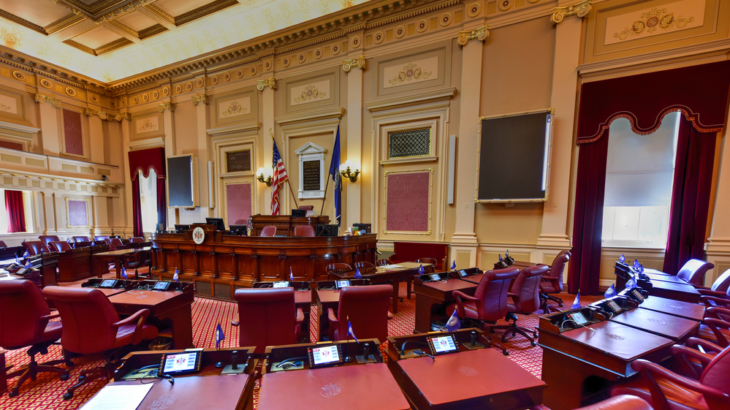Role of State Representatives and Their House Speakers, and State Senators
LISTEN ON SOUNDCLOUD:
State government is designed almost exactly like the Federal government. In every state except Nebraska, state governments govern with a two-chamber legislature. The smaller, upper chamber, is called the State Senate and the larger, lower chamber, is called the House of Representatives, Assembly or House of Delegates.
There are three branches of government in every state: legislative, executive, and judicial. The balance of powers spread among three branches ensures a just and fair system. Most states have a governor, lieutenant governor, senators and representatives, most of whom serve in what is called a State Legislature. Other names used are General Assembly, General Court, or Legislative Assembly.
The Nebraska legislature only has only one chamber called unicameral because it consists of only one house. Although generally referred to as the “Legislature” or the “Unicameral,” the senate is the legislative body that was retained following the 1937 reorganization. Consequently, members of the Nebraska legislature are only referred to as “senators.”
At the state level, representatives are elected according to districts and population determines how many representatives are elected. In general, each district receives two state representatives and one state senator. For example, Washington State has 49 senators, one for every district, and 98 representatives, two for every district. Term length for the Washington State senate is four years, and two years for representatives. In Washington State, like the Vice President of the United States, the Lieutenant Governor serves as President of the Senate, only casting a vote in case of a tie.
Largely populated states have legislatures that function similar to Congress regarding legislative sessions. Some states have full-time legislatures, others part-time affecting length of months spent in session. State legislators vote on hundreds of bills a year while they are in session and decide tax laws, state spending, and other public policies to represent the people in each of their specific districts.
Each State House of Representatives elects a Speaker of the House at the beginning of their respective legislative sessions. According to Ballotpedia.org,
The speaker is the principal leader of the lower legislative chamber. Though specific duties of the position vary in state legislatures across the country, the speaker may assume any or all of the following duties:
- Presides over the chamber to ensure that members abide by the rules and procedures
- Acts as a leader of the majority party
- Serves the constituency of their district
- Administers oaths of office
- Communicates with state executives and Senate leadership
- Rules on procedural questions
- Appoints committee chairs and/or members
- Signs legislation and official documents
Depending on the state, the speaker of the House may vote on all questions before the chamber or may only cast tie-breaking votes. In some states, the speaker may vote on all questions, but is only required to vote in the event of a tie.
State legislators are voted into office by the people of their respective states, and for the people of those states. They are elected to represent the needs and concerns of the people who gave them their votes. Understanding what constituents need is a complex task, so communication with constituents is a vital key to doing the best job possible while legislators serve in office.
Mary Salamon is the author of Government and Its People: How the Church Can Participate in Government. She resides in the Pacific Northwest and was the publisher of Marysville Tulalip Life Magazine. She served as the Washington State Leader for the Governors Prayer Team and is the mother of three sons and five beautiful grandchildren. She is available for speaking engagements at local civic events, churches and conferences.
Click Here to have the NEWEST essay in this study emailed to your inbox every day!
Click Here to view the schedule of topics in our 90 Day Study on Congress.
References:
Nebraska State Legislature: https://nebraskalegislature.gov/about/ou_facts.php
Ballotpedia, House Speaker: https://ballotpedia.org/State_Speaker_of_the_House
Ballotpedia, Washington State: https://ballotpedia.org/Washington_State_Legislature




Join the discussion! Post your comments below.
Your feedback and insights are welcome.Feel free to contribute!